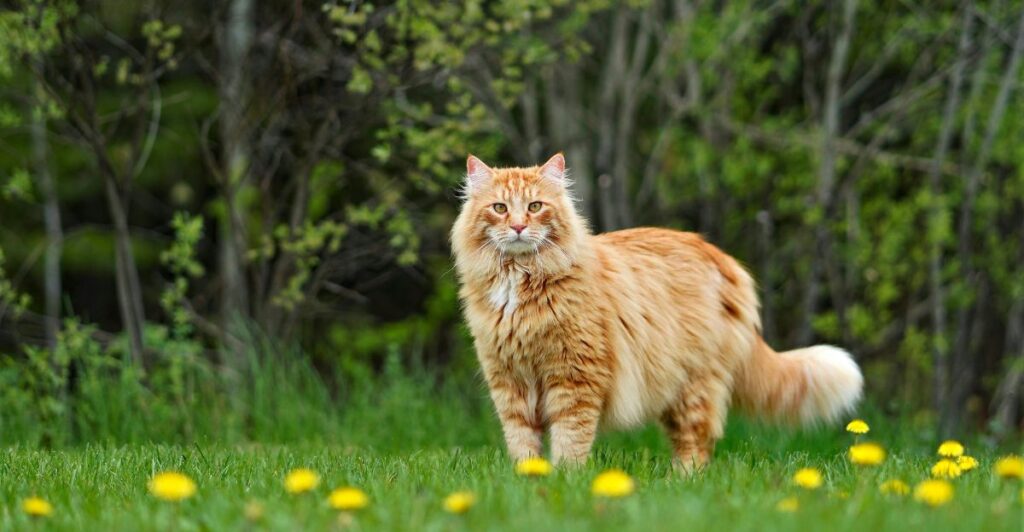
Owning a Maine Coon feels like welcoming royalty into your home. These cats are famous for their size, personality, and charm. But choosing a pet is a big decision. So, is this cat a right fit for you?
Maine Coon owners talk about their strong bonds with these cats, noting their affectionate, playful, and intelligent nature. However, owners also share the challenges, like grooming needs and higher upkeep costs.
Before you adopt one, you must check whether a Maine Coon suits your lifestyle and that you both are a happy match for each other. Here are 12 facts to help you make a decision.
1. Largest Domestic Cat Breed
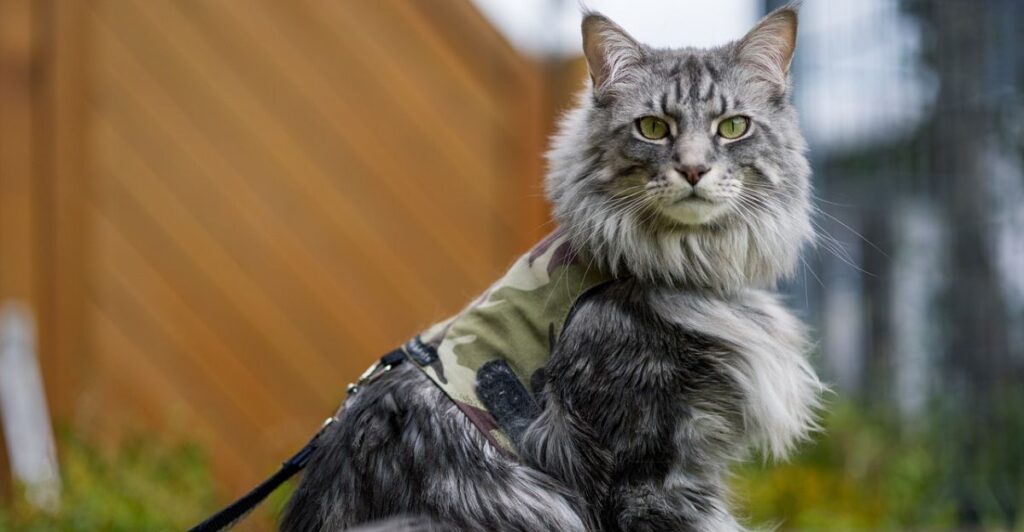
Maine Coons were beloved in their home state. They were showcased in the first North American cat shows in the late 19th century. However, their popularity waned in the early 20th century as exotic breeds took the spotlight.
But Maine Coons are back with a bang, and today, they are famous for being the largest pet cats on Earth. Males often reach 18 pounds and over 40 inches in length from nose to tail. Their long, bushy tails and sturdy builds make them unmistakable.
2. Thick, Water-Repellent Fur Built For Cold
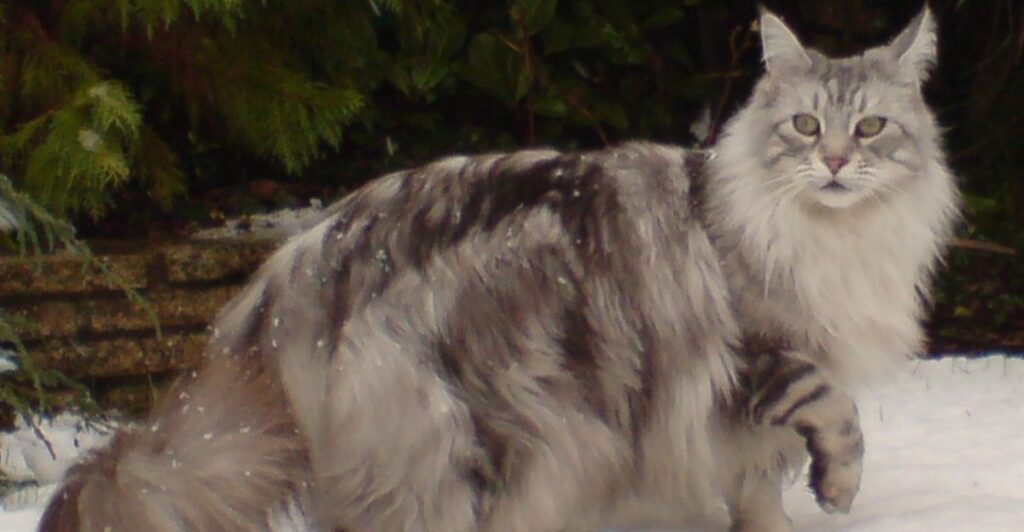
The dense, water-resistant fur of this breed has evolved to handle the harsh winters of their New England origin. Such thick coats keep them warm and dry in areas with similar weather conditions—wet and snowy. Fluffy tails work like blankets for them as they wrap them around their bodies when temperatures drop.
Moreover, the unique tufts on their ears and paws keep them safe from icy winds and surfaces. However, make sure you take great care of their coat during shedding seasons, which can be particularly tough for some.
3. Maine Coons Adapt Well To Different Climates
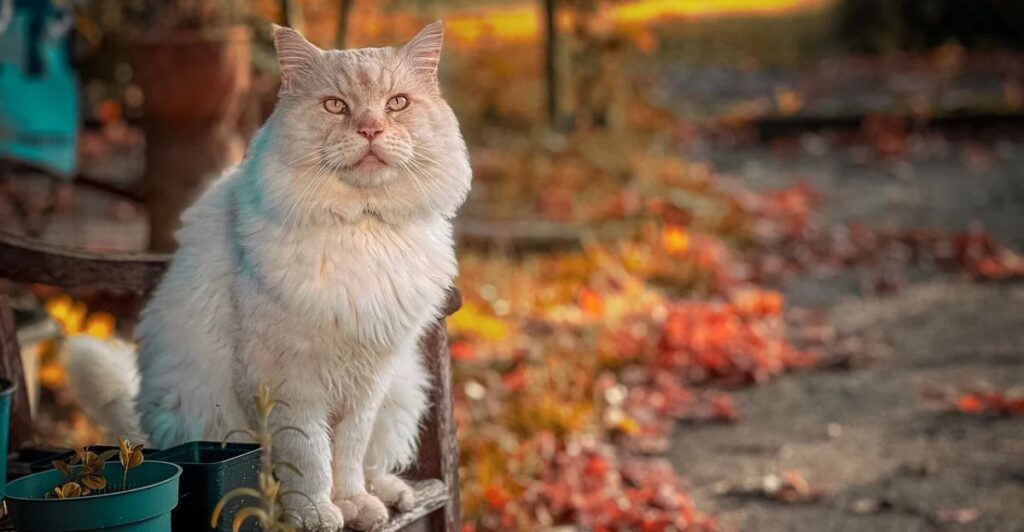
The cats are naturally equipped to handle cold temperatures, but they can adapt to warmer climates too. Thick, water-resistant coats insulate them in winter, and the seasonal shedding helps them adjust to hotter weather.
Owners in warmer regions often notice that their Maine Coon is looking for a cool spot, like tiled floors or shaded areas, to feel more comfortable. If you live in a warmer region, give them fresh water and cool spaces.
4. Friendly And Affectionate Family Companions
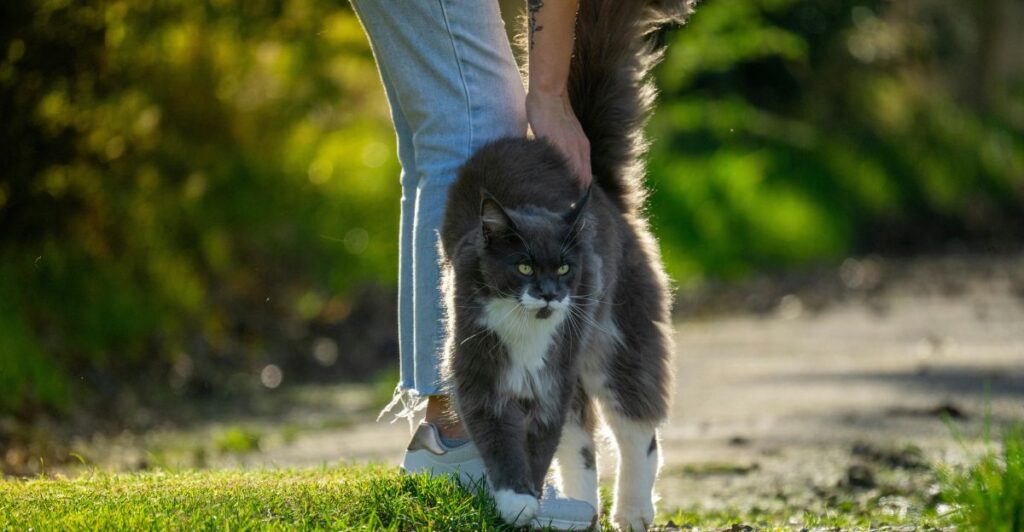
Maine Coons are among the most family-friendly cat breeds due to their gentle and loving nature. People can feel their relaxed vibe once they become a part of the family, even if they have kids or other pets.
Rather than demanding attention, these cats quietly enjoy being around their humans. Following family members from room to room or curling up nearby is how they show affection. Unlike aloof breeds, Maine Coons like some interaction and companionship.
5. Playful, With Dog-Like Fetching Skills
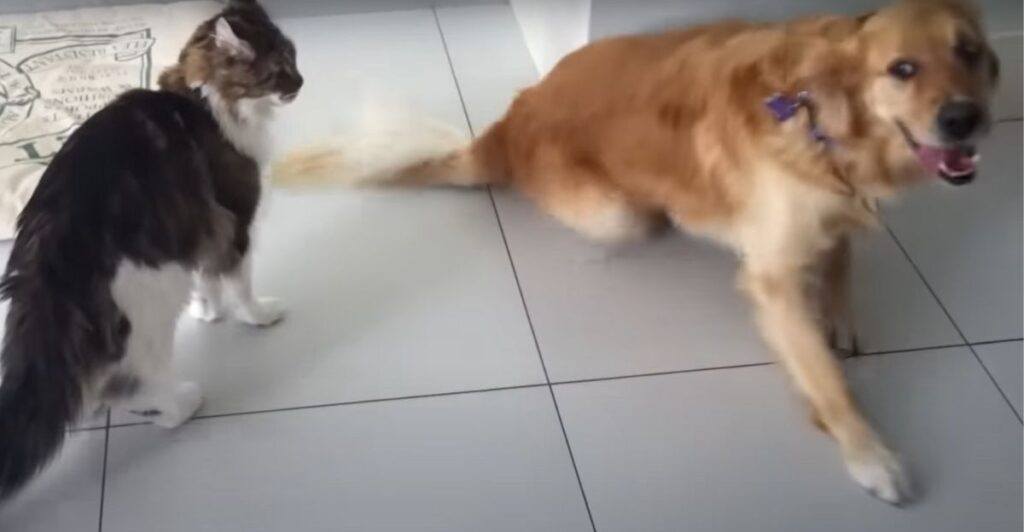
Playtime with a Maine Coon can be an adventure for many individuals. You’d be surprised to know that this breed is famous for its dog-like behavior. Maine Coons enjoy pet games like fetching toys and chasing objects.
Interactive toys and puzzles also keep them mentally stimulated, while their curiosity drives them to explore new challenges. Such playful tendencies run throughout adulthood, so they can bring endless fun to your home.
6. Love Splashing Around In Water
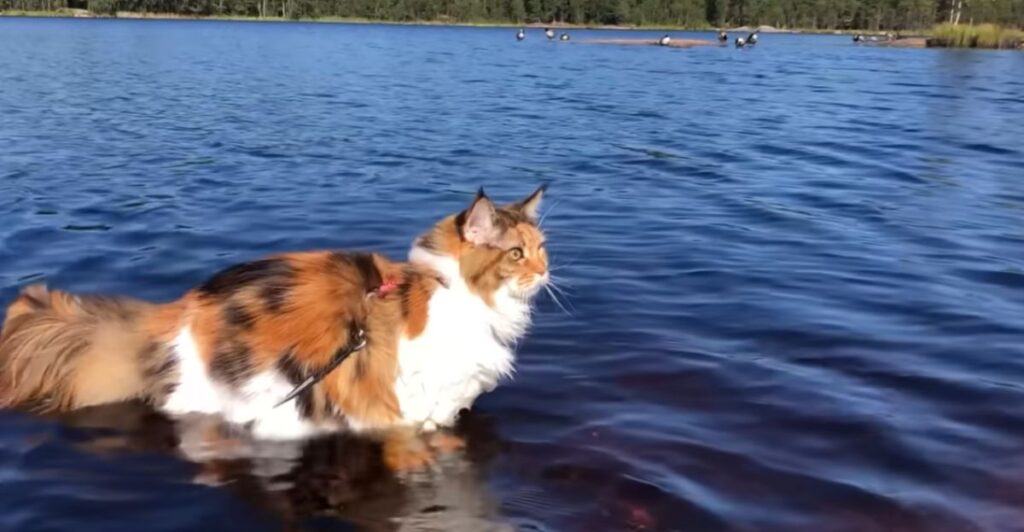
Some cats shy away at the sight of water, but this one loves some wet playtime. You can find them pawing at a dripping faucet or exploring shallow baths—water play just seems to be in their DNA.
This behavior may stem from their origins in seafaring New England, where water was a constant presence. Many owners provide water bowls or supervised playtime to indulge their curiosity safely.
7. Unique Chirps And Trills Instead Of Meows
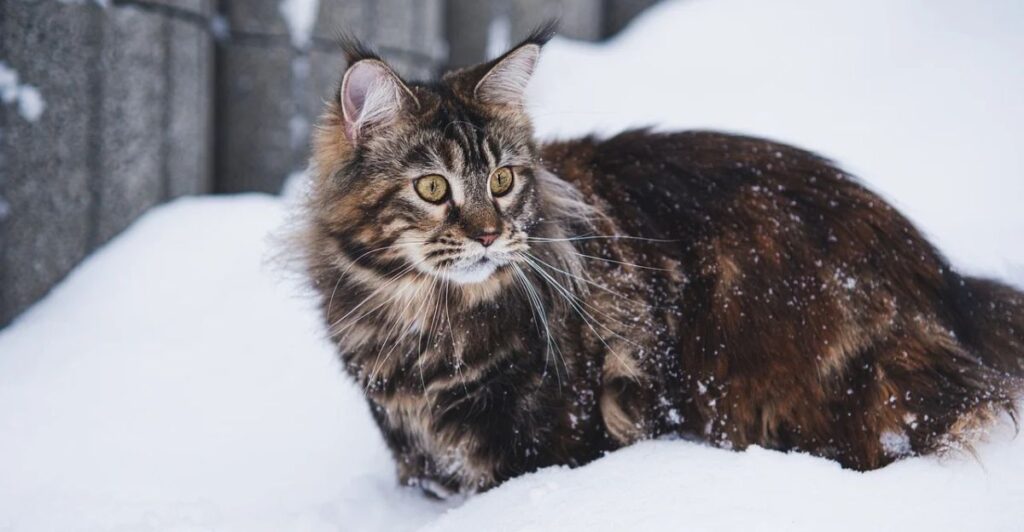
The sounds Maine Coons make are as unique as their size. Chirps, trills, and soft chatter replace the typical meows you’d expect from a cat—sounds that are not supposed to make you go mad or annoyed.
These vocalizations are their way of communicating excitement, curiosity, or even affection. Owners quickly learn to interpret their sounds, which creates a deeper connection with this cat.
8. Highly Intelligent And Easy To Train
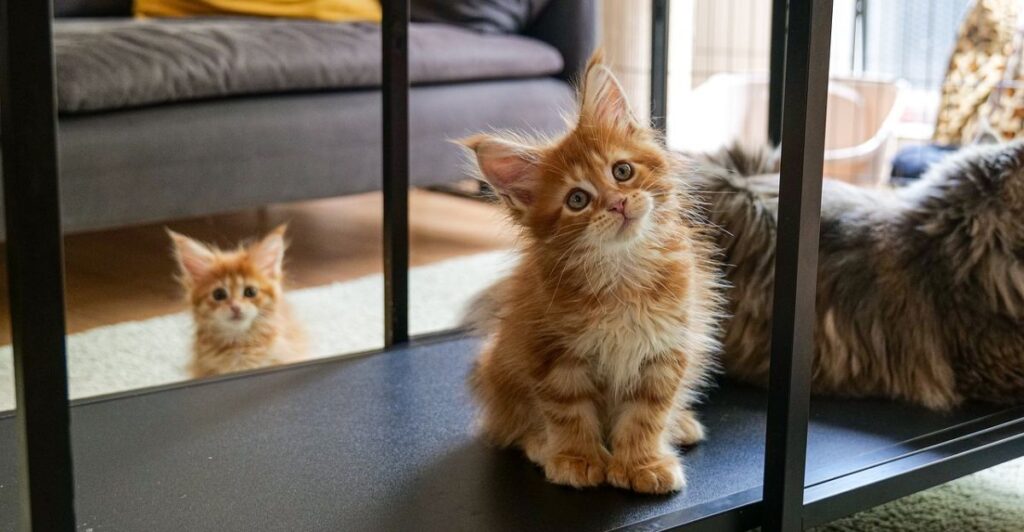
For owners who enjoy teaching their pets, Maine Coons make excellent, responsive students. They are quick learners with an eagerness to please, which makes them surprisingly trainable. Also, they enjoy mastering tricks like sitting or even walking on a leash.
Training sessions with treats and appreciation keep them busy and mentally refreshed. Unlike many cats, Maine Coons enjoy being your pet. Intelligence also shines through when they show their problem-solving skills in games and puzzles.
9. Fur Demands Regular Grooming Sessions

Keeping a Maine Coon’s coat tangle-free needs owners to groom them regularly. Their long fur tends to mat, especially around the tail and belly, if you don’t brush it frequently. So, it’s a must to comb them.
A few brushing sessions each week go a long way when it comes to maintaining their luxurious coat. For owners who start early, grooming becomes a bonding activity. Many Maine Coons enjoy the attention, and the chore turns into quality time.
10. Higher Food Costs Due To Size
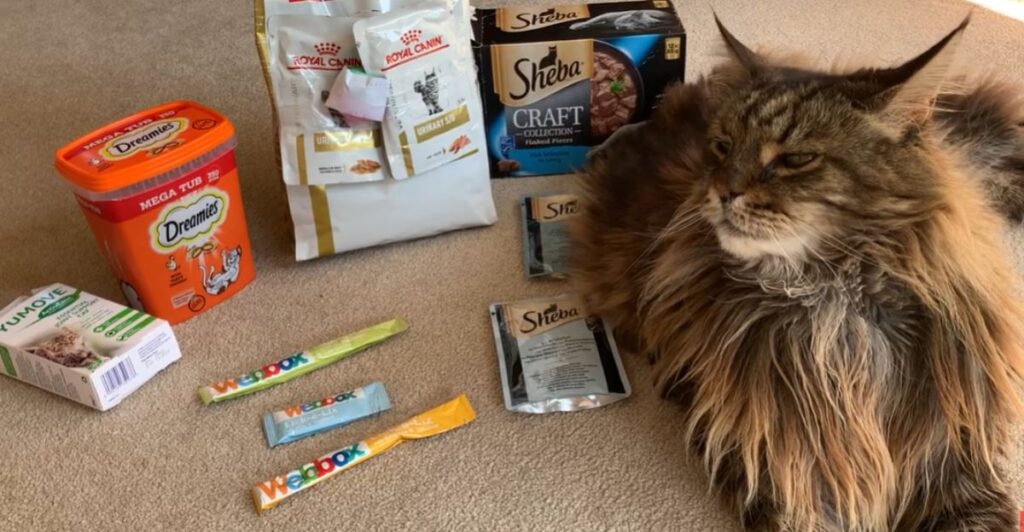
Maine Coons, being larger cats, require more food than typical domestic breeds. An adult Maine Coon usually consumes between 200-250 grams of wet food daily. This means approximately 360–525 calories for them and $30 to $60 for you, depending on the quality of the food.
You must budget for these expenses to make sure your cat gets the nutrition necessary for a healthy and active life. Otherwise, the poor cat can develop issues like malnutrition, diabetes, and dental problems.
11. Genetic health risks like hip dysplasia
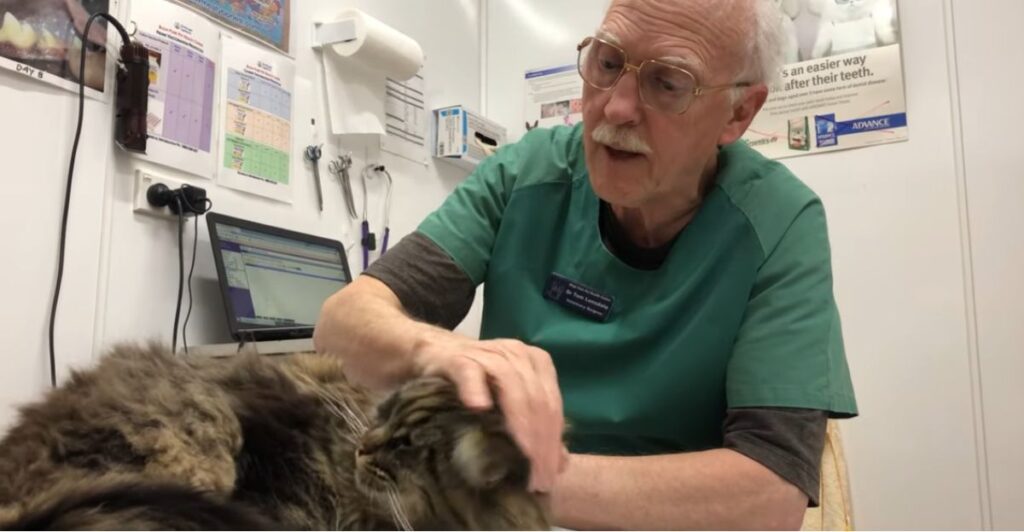
A Maine Coon is prone to genetic conditions, including hip dysplasia. It affects their mobility and hypertrophic cardiomyopathy (HCM), a heart condition. These health risks are common in other large cat breeds, too.
Thankfully, you can manage these conditions with regular vet visits. Responsible breeders often test for these issues, so it’s important to research the source of your Maine Coon. By giving them proper care, you can avoid most health problems.
12. Need Space To Climb And Explore Freely
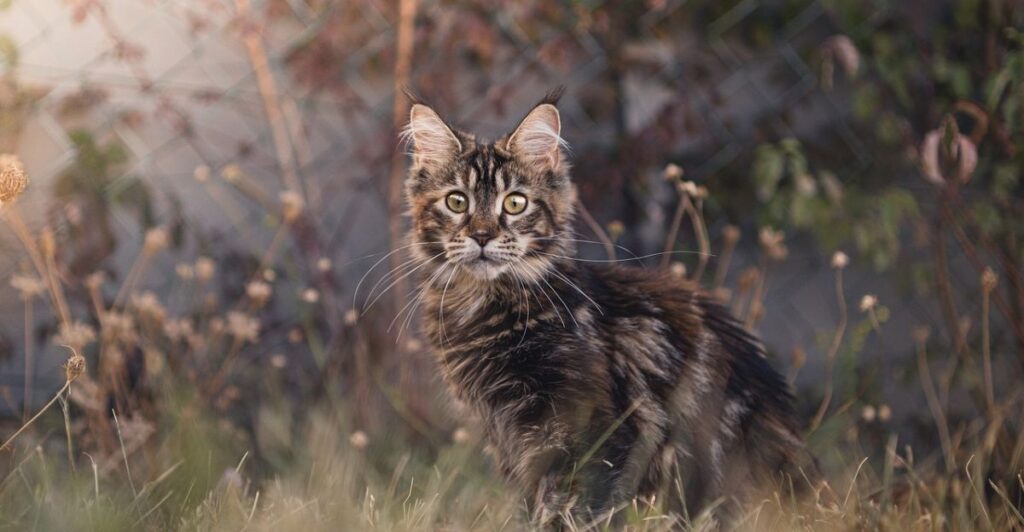
Since Maine Coons are large, active cats, they are happier in environments where there is plenty of space. Large scratching posts, climbing trees, and tall shelves give them the rush they need.
So, your home needs to have spaces where they can roam and climb safely to avoid getting bored. While they can adapt to apartment living, owners must invest in interactive spaces to keep them happy. A home that satisfies their energy and curiosity along with their health is a good home for a Maine Coon.
Stay connected with us for more stories like this! Follow us to get the latest updates or hit the Follow button at the top of this article, and let us know what you think by leaving your feedback below. We’d love to hear from you!







